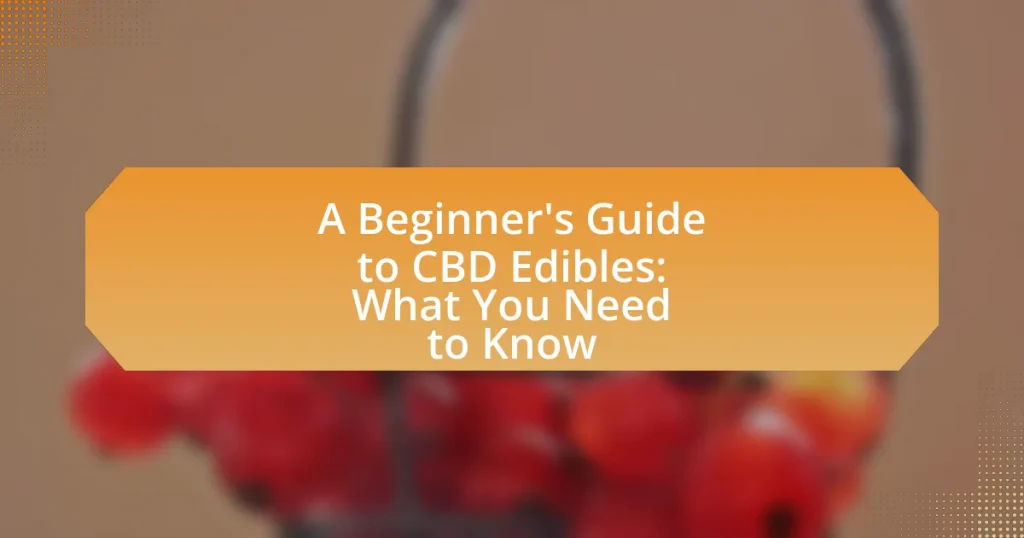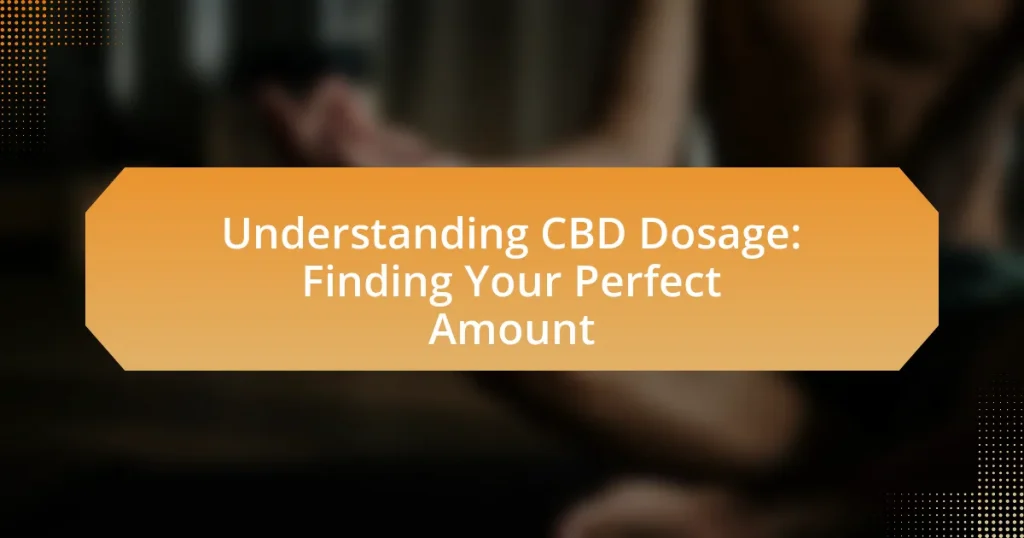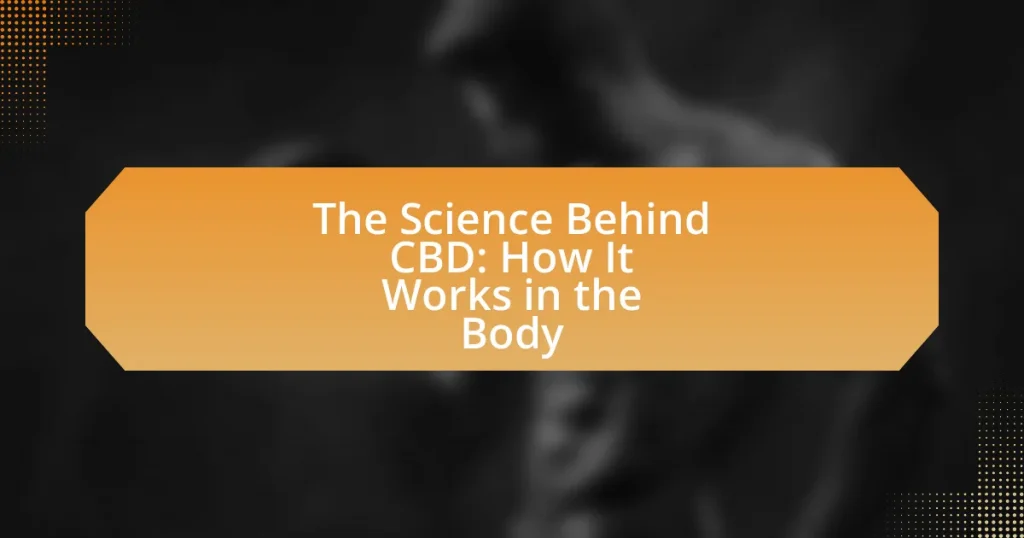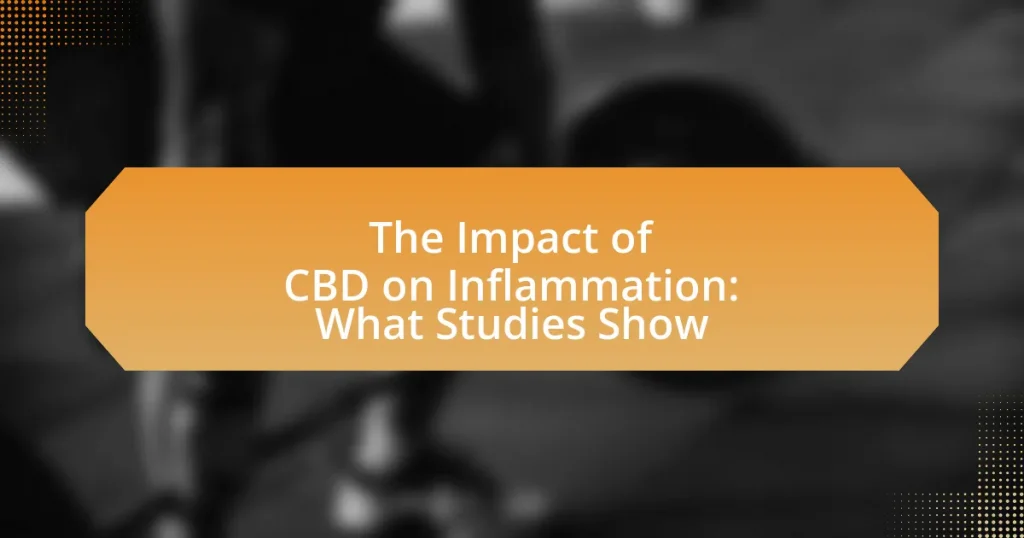CBD edibles are food products infused with cannabidiol (CBD), a non-psychoactive compound from the cannabis plant, available in various forms such as gummies, chocolates, and beverages. This guide provides essential information for beginners, covering the differences between CBD edibles and other forms of CBD, typical dosages, potential benefits, and how they fit into a wellness routine. It also addresses common misconceptions, potential side effects, and best practices for consumption, ensuring users can make informed decisions about incorporating CBD edibles into their daily lives.
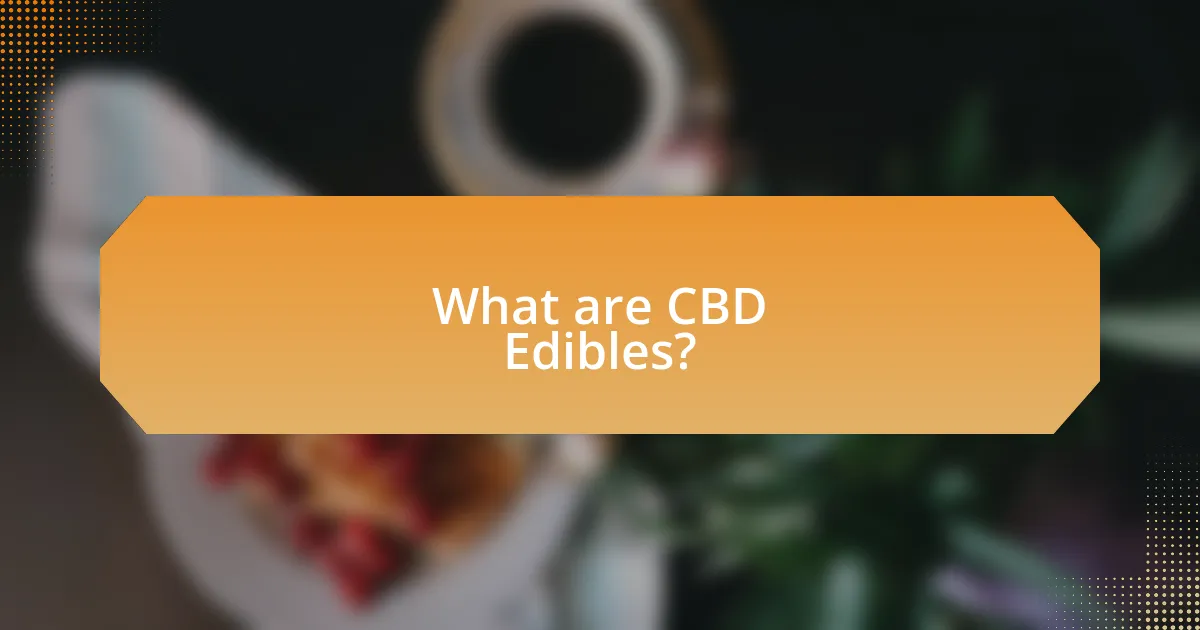
What are CBD Edibles?
CBD edibles are food products infused with cannabidiol (CBD), a non-psychoactive compound derived from the cannabis plant. These edibles come in various forms, including gummies, chocolates, beverages, and baked goods, allowing consumers to easily incorporate CBD into their diets. The effectiveness of CBD edibles is supported by research indicating that they can provide therapeutic benefits, such as pain relief and anxiety reduction, due to the interaction of CBD with the body’s endocannabinoid system.
How do CBD Edibles differ from other forms of CBD?
CBD edibles differ from other forms of CBD primarily in their method of consumption and onset of effects. Unlike oils, tinctures, or vaping, which deliver CBD directly into the bloodstream, edibles are ingested and metabolized through the digestive system, resulting in a delayed onset of effects, typically ranging from 30 minutes to 2 hours. This metabolic process also alters the way CBD is processed in the body, often leading to a longer-lasting effect compared to other forms. Additionally, edibles come in various forms, such as gummies or baked goods, which can make them more appealing and easier to incorporate into daily routines.
What are the various types of CBD Edibles available?
The various types of CBD edibles available include gummies, chocolates, beverages, capsules, and baked goods. Gummies are the most popular form, offering a convenient and tasty way to consume CBD, often available in various flavors and dosages. Chocolates provide a sweet alternative, combining the benefits of CBD with rich flavors. Beverages, such as CBD-infused teas and coffees, allow for easy incorporation into daily routines. Capsules offer a precise dosage and are ideal for those who prefer a more traditional supplement form. Baked goods, including cookies and brownies, provide a homemade feel while delivering the effects of CBD. Each type of edible serves different preferences and consumption methods, catering to a wide range of users.
What is the typical dosage of CBD in Edibles?
The typical dosage of CBD in edibles ranges from 5 mg to 25 mg per serving. Many manufacturers recommend starting with a lower dose, such as 5 mg to 10 mg, especially for beginners, and then gradually increasing as needed. This dosage range is supported by various studies indicating that effective doses for therapeutic effects often fall within this spectrum, allowing users to find their optimal level without overwhelming side effects.
Why are CBD Edibles popular among consumers?
CBD edibles are popular among consumers primarily due to their convenience and discreet consumption. These products offer a simple way to incorporate CBD into daily routines without the need for specialized equipment or methods. Additionally, the variety of flavors and forms, such as gummies and chocolates, appeals to a wide audience, making them an attractive option for those seeking the potential benefits of CBD. Research indicates that the global CBD edibles market is projected to grow significantly, reflecting increasing consumer interest and acceptance of these products.
What benefits do users seek from CBD Edibles?
Users seek various benefits from CBD edibles, primarily for their potential to alleviate anxiety, reduce pain, and improve sleep quality. Research indicates that CBD interacts with the endocannabinoid system, which plays a crucial role in regulating mood and pain perception. A study published in the Journal of Clinical Psychology found that CBD can significantly reduce anxiety levels in individuals with social anxiety disorder. Additionally, a review in the journal Frontiers in Pharmacology highlighted CBD’s analgesic properties, suggesting it may help manage chronic pain. Furthermore, users often report improved sleep patterns, supported by findings in the journal Medicines, which indicate that CBD may enhance sleep quality and reduce insomnia symptoms.
How do CBD Edibles fit into a wellness routine?
CBD edibles fit into a wellness routine by providing a convenient and discreet method for individuals to incorporate cannabidiol into their daily health practices. These edibles, such as gummies or chocolates, allow for precise dosing, making it easier to manage intake and achieve desired effects, such as stress relief or improved sleep quality. Research indicates that CBD may help reduce anxiety and promote relaxation, which can enhance overall well-being. For instance, a study published in the Journal of Clinical Psychology found that CBD significantly reduced anxiety levels in participants, supporting its role in a wellness regimen.
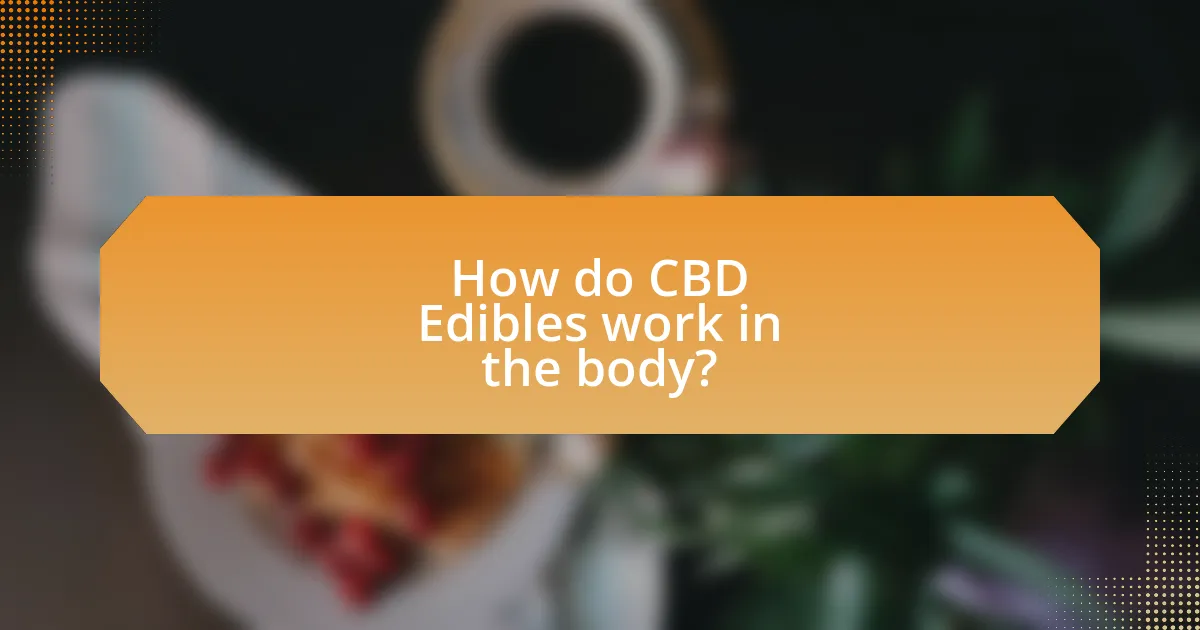
How do CBD Edibles work in the body?
CBD edibles work in the body by delivering cannabidiol through the digestive system, where it is metabolized and absorbed into the bloodstream. Once ingested, the liver processes CBD, converting it into various metabolites, which then interact with the endocannabinoid system, primarily affecting cannabinoid receptors in the brain and throughout the body. This interaction can lead to various effects, such as pain relief, reduced anxiety, and improved mood. Research indicates that the bioavailability of CBD in edible form is lower than other methods, typically ranging from 6% to 20%, due to the first-pass metabolism in the liver.
What is the process of digestion and absorption of CBD Edibles?
The process of digestion and absorption of CBD edibles begins when the edibles are consumed and enter the gastrointestinal tract. In the stomach, the edibles are broken down by gastric acids and enzymes, which helps to release CBD from the food matrix. Following this, the partially digested contents move into the small intestine, where the majority of absorption occurs.
In the small intestine, CBD is absorbed through the intestinal walls into the bloodstream. This process is facilitated by the presence of fats in the edibles, which enhance the bioavailability of CBD. Once in the bloodstream, CBD is transported to the liver, where it undergoes first-pass metabolism, potentially altering its effects. Research indicates that the bioavailability of CBD when taken orally can range from 6% to 19%, depending on various factors such as the formulation of the edible and individual metabolism.
How long does it take for CBD Edibles to take effect?
CBD edibles typically take 30 minutes to 2 hours to take effect. This delayed onset is due to the digestion process, where the body metabolizes the CBD before it enters the bloodstream. Research indicates that factors such as individual metabolism, the type of edible consumed, and dosage can influence the time it takes for effects to be felt.
What factors influence the effectiveness of CBD Edibles?
The effectiveness of CBD edibles is influenced by several key factors, including dosage, individual metabolism, the presence of other cannabinoids, and the formulation of the edible itself. Dosage is critical, as insufficient amounts may not produce noticeable effects, while excessive doses can lead to adverse reactions. Individual metabolism varies significantly among users, affecting how quickly and efficiently CBD is processed in the body. The presence of other cannabinoids, such as THC, can enhance the overall effects due to the entourage effect, where compounds work synergistically. Additionally, the formulation, including the type of edible (gummy, chocolate, etc.) and the method of extraction used, can impact bioavailability and absorption rates, ultimately determining the effectiveness of the CBD edibles.
What are the potential side effects of consuming CBD Edibles?
Consuming CBD edibles can lead to several potential side effects, including dry mouth, fatigue, changes in appetite, and diarrhea. Research indicates that these effects are primarily due to CBD’s interaction with the endocannabinoid system, which can influence various physiological processes. A study published in the journal Cannabis and Cannabinoid Research found that while CBD is generally well-tolerated, some individuals may experience adverse effects, particularly at higher doses.
How can users minimize adverse effects?
Users can minimize adverse effects of CBD edibles by starting with a low dosage and gradually increasing it as needed. This approach allows individuals to assess their tolerance and identify the optimal amount that provides benefits without unwanted side effects. Research indicates that lower doses of CBD are often effective for therapeutic purposes, while higher doses may lead to increased adverse reactions, such as fatigue or gastrointestinal discomfort. Additionally, users should choose high-quality products from reputable sources, as these are more likely to have accurate labeling and fewer contaminants, further reducing the risk of adverse effects.
What should users know about CBD Edibles and drug interactions?
Users should know that CBD edibles can interact with various medications, potentially altering their effectiveness. Specifically, CBD can inhibit cytochrome P450 enzymes in the liver, which are responsible for metabolizing many drugs, including blood thinners and certain antidepressants. This inhibition can lead to increased levels of these medications in the bloodstream, heightening the risk of side effects. Research published in the journal “Clinical Pharmacokinetics” highlights that CBD can affect the metabolism of drugs, emphasizing the importance of consulting a healthcare professional before combining CBD edibles with other medications.
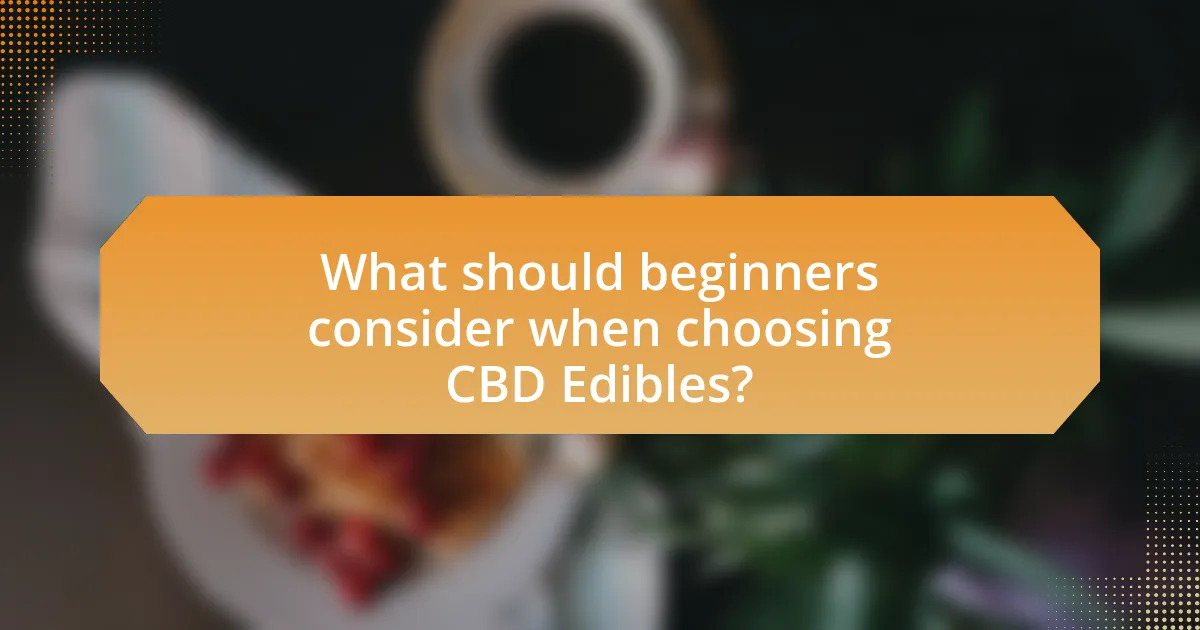
What should beginners consider when choosing CBD Edibles?
Beginners should consider the dosage, ingredients, and source of CBD when choosing CBD edibles. The dosage is crucial because it determines the effects; beginners should start with a low dose, typically around 5-10 mg of CBD, and gradually increase as needed. Ingredients matter as well; consumers should look for edibles made with natural ingredients and avoid those with artificial additives or high sugar content. Lastly, the source of CBD is important; reputable brands provide third-party lab testing results to ensure product quality and accurate CBD content, which is essential for safety and efficacy.
How do you select the right CBD Edible for your needs?
To select the right CBD edible for your needs, first assess your desired effects and dosage requirements. Different CBD edibles, such as gummies, chocolates, or beverages, offer varying concentrations of CBD, typically ranging from 5 mg to 50 mg per serving. Understanding your personal tolerance and the specific benefits you seek, such as pain relief or anxiety reduction, will guide your choice. Additionally, consider the product’s ingredients, including any allergens or additives, and ensure it is sourced from a reputable manufacturer that provides third-party lab testing results to verify potency and purity. This approach ensures that you choose a CBD edible that aligns with your health goals and dietary preferences.
What should you look for in product labeling and quality?
When evaluating product labeling and quality for CBD edibles, look for clear information on the cannabinoid content, including the amount of CBD per serving and the presence of other cannabinoids. Accurate labeling ensures consumers understand the potency and effects of the product. Additionally, check for third-party lab testing results, which verify the product’s purity and safety by confirming it is free from contaminants like heavy metals, pesticides, and solvents. This testing is crucial as it provides transparency and builds trust in the product’s quality. Furthermore, ensure that the product complies with legal regulations, including the THC content, which should be below 0.3% in hemp-derived products.
How can you determine the right dosage for beginners?
To determine the right dosage for beginners, start with a low dose, typically between 5 to 10 milligrams of CBD, and gradually increase it based on individual response. Research indicates that beginners often experience varying effects, so starting low allows for safe adjustment without overwhelming side effects. A study published in the Journal of Pain Research found that lower doses can effectively manage symptoms while minimizing adverse reactions, reinforcing the importance of a cautious approach for those new to CBD.
What are some common misconceptions about CBD Edibles?
Common misconceptions about CBD edibles include the belief that they cause a psychoactive high, that they are illegal everywhere, and that they are a cure-all for various ailments. CBD edibles do not produce a high because they contain cannabidiol, which is non-psychoactive, unlike THC found in marijuana. Additionally, while CBD derived from hemp is federally legal in the United States, state laws may vary, leading to confusion about legality. Lastly, while some studies suggest potential therapeutic benefits of CBD for conditions like anxiety and epilepsy, it is not a guaranteed cure for all health issues, as the FDA has not approved CBD for most medical uses.
Why do some people believe CBD Edibles are not effective?
Some people believe CBD edibles are not effective due to factors such as inconsistent dosing, delayed onset of effects, and individual variability in metabolism. Inconsistent dosing occurs because the concentration of CBD in edibles can vary significantly between products, leading to uncertainty about how much is being consumed. The delayed onset of effects, which can take 30 minutes to 2 hours, may cause users to underestimate the product’s efficacy, as they might not feel immediate relief. Additionally, individual differences in metabolism and body chemistry can affect how CBD is processed, resulting in varying experiences among users. These factors contribute to skepticism regarding the effectiveness of CBD edibles.
What myths exist regarding the legality of CBD Edibles?
Myths regarding the legality of CBD edibles include the belief that all CBD products are illegal, that CBD edibles can get you high, and that they are unregulated. In reality, CBD derived from hemp containing less than 0.3% THC is federally legal in the United States due to the 2018 Farm Bill. Additionally, CBD edibles do not produce psychoactive effects because they contain minimal THC levels. Furthermore, while the FDA has not fully regulated CBD edibles, many states have established their own regulations to ensure product safety and labeling accuracy.
What are the best practices for consuming CBD Edibles?
The best practices for consuming CBD edibles include starting with a low dose, waiting for effects before consuming more, and choosing high-quality products. Starting with a low dose, typically 5-10 mg, allows individuals to assess their tolerance and response to CBD. Waiting at least 1-2 hours after consumption is crucial, as edibles can take time to metabolize and produce effects. Additionally, selecting products from reputable brands that provide third-party lab testing ensures the quality and potency of the CBD, which is essential for safety and effectiveness.
How can you incorporate CBD Edibles into your daily routine?
To incorporate CBD edibles into your daily routine, start by determining the appropriate dosage based on your individual needs and preferences. Many users find that taking CBD edibles in the morning with breakfast, such as gummies or infused snacks, helps to establish a consistent routine. Additionally, consuming CBD edibles during lunch or as an afternoon snack can provide ongoing relief from stress or discomfort throughout the day.
Research indicates that CBD can help reduce anxiety and improve mood, making it beneficial for daily use. A study published in the Journal of Clinical Psychology found that CBD may effectively reduce anxiety levels in individuals, supporting its incorporation into daily routines for mental wellness. By integrating CBD edibles at specific times, you can create a habit that aligns with your lifestyle while potentially enhancing your overall well-being.
What tips can help enhance the experience of using CBD Edibles?
To enhance the experience of using CBD edibles, start by determining the appropriate dosage for your individual needs, as effects can vary significantly based on body weight, metabolism, and tolerance. Research indicates that beginners should start with a low dose, typically around 5-10 mg of CBD, and gradually increase until the desired effects are achieved. Additionally, consuming CBD edibles on an empty stomach can lead to faster onset of effects, as food can slow absorption. It’s also beneficial to choose high-quality products from reputable brands, as this ensures accurate labeling and consistent potency. Lastly, pairing CBD edibles with a relaxing environment can enhance the overall experience, as stress and anxiety can diminish the effects of CBD.
